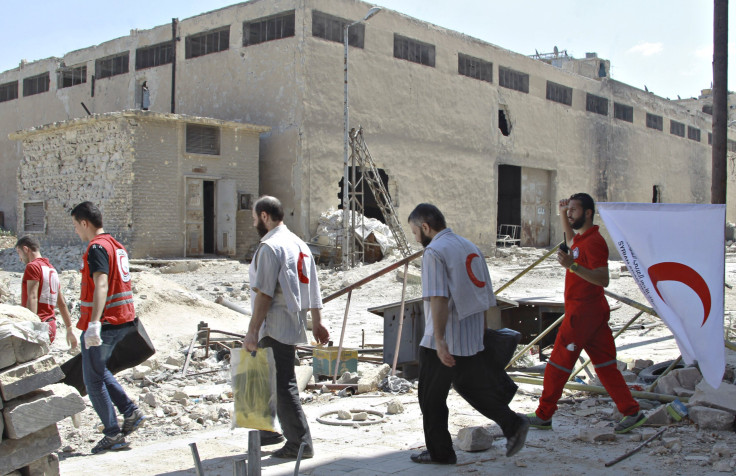US Pledges Nearly $500 Million In Aid For Syrian Civilians

Even as it plans to begin airstrikes against militants in Syria, the U.S. pledged nearly $550 million in aid for Syrian civilians and neighboring countries affected by the civil war. U.S. Secretary of State John Kerry made the announcement Friday and said nearly half the money would going to refugees and the countries taking them in, Reuters reported. Kerry did not specify where the remaining aid would be allocated, nor how it would each Syrians in need.
Since the Syrian civil war began in 2011 the U.S. has pledged more than $2 billion for the 10.8 million Syrians in need of some form of humanitarian assistance, according to USAID. Previous aid packages were distributed through funding Syrian NGOs and international organizations that work with Syria to provide food assistance, relief supply kits and other necessities. The United Nations is able to bring humanitarian aid into Syria through Turkey and Jordon without permission from the Syrian regime.
The new aid package was announced days after President Barack Obama pledged to lead an international coalition of countries working together to defeat the Islamic State (ISIS) in both Syria and Iraq. The U.S. will conduct an air campaign on ISIS strongholds in the country in addition to training and arming moderate rebels on the ground.
More than 6.5 million people were forced to flee their homes in Syria but have not been able to escape the country, according to the U.N. In order to cross Syria’s borders, some are forced to pay bribes they cannot afford due to the astronomical rise in Syria’s cost of living, according to a United Nations Refugee Agency (UNCHR) reported released at the end of August.
When air strikes begin, civilians left in Syria will have yet another thing to worry about. Not only will they be in danger from clashes between Islamist rebels, moderate rebels and Bashar Assad’s regime forces, but also bombs intended for ISIS.
"Almost half of all Syrians have now been forced to abandon their homes and flee for their lives,” a Nations Refugee Agency (UNCHR) spokesperson said in a statement released at the end of August. “One in every eight Syrians has fled across the border, fully a million more than a year ago. A further 6.5 million are displaced within Syria. Over half of those uprooted are children."
Some Syrian civilians were able to flee the country. The U.N said nearly 3 million Syrians have refugee status in other countries and more than 33,000 are awaiting registration. Lebanon is currently hosting the largest number of refugees and is hosting 1.17 million. Turkey has 830,000 and Jordan has 613,000 according to UNCHR data. Together, Egypt and Iraq have taken in over 200,000 refugees.
© Copyright IBTimes 2025. All rights reserved.






















